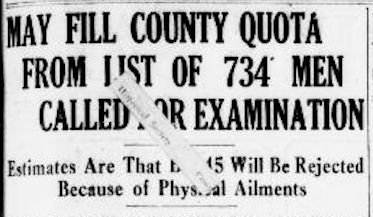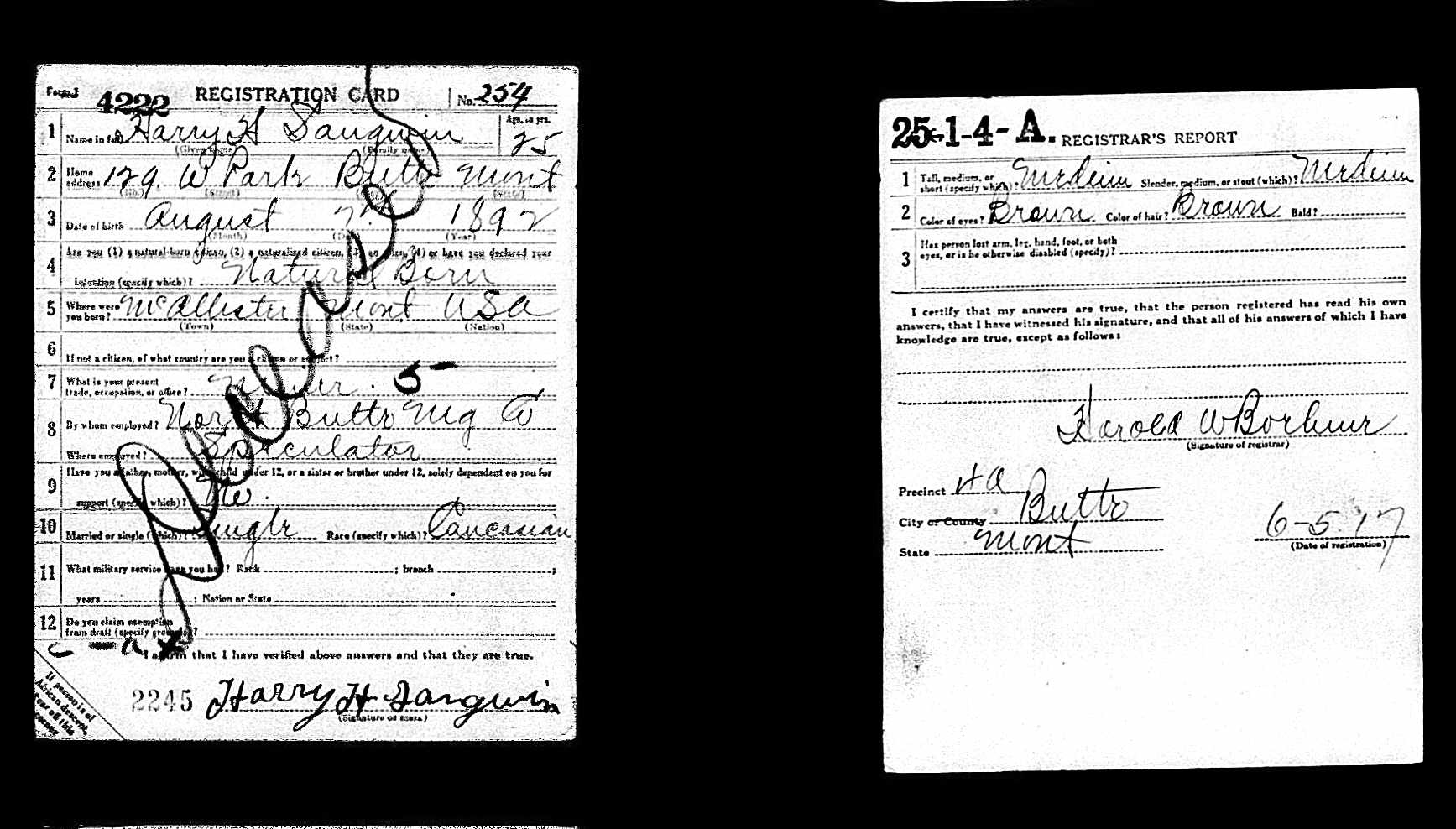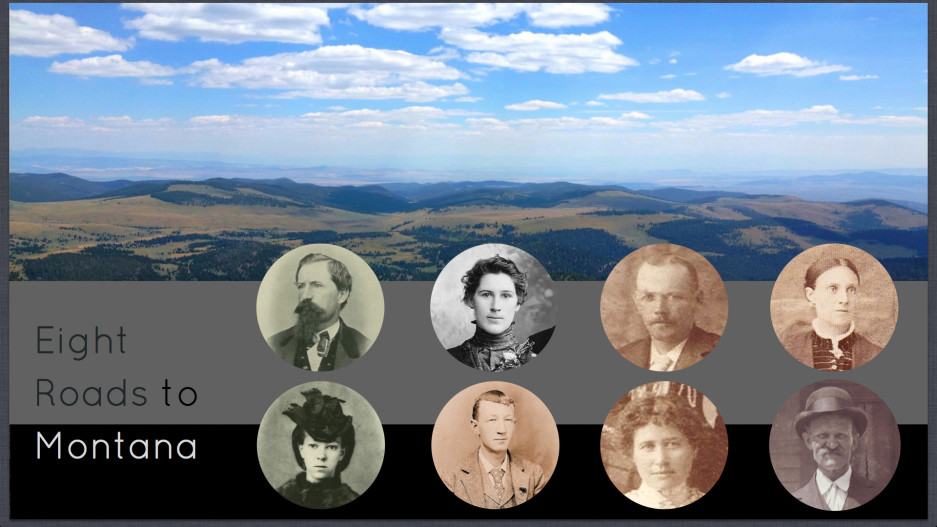From The Butte Daily Post on this day in 1917 comes this article on men called for examination for the “national army”.1

I’ve transcribed some excerpts from the article, which began on page 1 of the paper that day, and continued on page 9.
“Here are some interesting figures gleaned from the
first two days’ examination of men for the national
army, as taken from the figures in the hands of the
county exemption board:
Out of 488 men called for examination in the first two
days, 104 failed to report at the courthouse for exemp-
tion.
Out of the first 150 men given preliminary examina-
tion on eyesight and hearing only four men failed to
come up to the necessary qualification on these two
points.
Out of the 198 men examined on Monday by the phy-
sicians but 37 returned to the county board’s offices
to make inquiry concerning exemption claims
Tentative figures on the 198 men examined Monday
are that but 22 will fail to qualify physically.
A majority of physical disqualifications will be on the
grounds of hernia or chronic stomach trouble.
Only six men have been suspected of trying to “fake”
in the examination of the first 198 me.
It takes an average of 1.4 minutes to examine a man
at the hospital where the examinations are conducted.”
[continuing on p. 9]
“Consideration of the cases of 104
men who have not reported or ex-
amination will not be undertaken until
Thursday morning, when the board
members will officially check over the
names of those who have reported for
examination. A few of the missing
men, it is known, have enlisted since
registration day. Two men named in
the first two days’ call have died since
registration day.2 Two men have been
officially reported sick and uanble to
reach the courthouse. A few did not
report because of insufficient knowl-
edge of draft rules, although the law
provides no leniency for men who ab-
sent themselves from examination by
their ignorance.
As fast as the missing men are
checked off as failing to report and
as having no excuse for absence, the
board will turn the names, descriptions
and addresses over to the federal gov-
ernment. Federal court trial or court-
martial will be in store then for the
missing ones. As soon as the exami-
nations are finished over the country,
the government will start a systematic
campaign of rounding up the “draft
duckers.”
Said He Was Sick.
One amusing incident happened at
the courthouse this morning. A young
foreigner, standing in a group of his
friends, was the subject of much
raillery.
“He say him sick,” said one of the
companions. “He tell the men his
stomach bad and he can’t fight. He
could eat nails and not be hurt.”
A young native American stepped
into the group.
“Look here,” he told the young for-
eigner. “If you are trying to fake
sickness I’m going to knock your block
off and make you really sick. Some of
you fellows who ran away from your
own country come over here for free-
dom are trying to duck your duty. But
we fellows are going to see that every
one of you does his bit for the country.
We are certainly not going to go to
war and fight for a bunch of foreigners
who have come over to enjoy our coun-
try.”
NOTES
- The Butte daily post. (Butte, Mont.), 07 Aug. 1917. Chronicling America: Historic American Newspapers. Lib. of Congress. <http://chroniclingamerica.loc.gov/lccn/sn85053058/1917-08-07/ed-1/seq-1/> ↩
- Sadly, some of the young men who registered for the draft on June 5th died in the Granite Mountain Speculator mine fire on June 8th. In all, 163 men died that night or in the following days. Here is a card that was filled out by Harry H. Sangwin.
 “United States World War I Draft Registration Cards, 1917-1918,” database with images, FamilySearch (https://familysearch.org : accessed 7 August 2017), Harry H. Sangwin, 1917-1918; citing Butte City, Montana, United States, NARA microfilm publication M1509 (Washington D.C.: National Archives and Records Administration, n.d.); FHL microfilm 1,684,100. ↩
“United States World War I Draft Registration Cards, 1917-1918,” database with images, FamilySearch (https://familysearch.org : accessed 7 August 2017), Harry H. Sangwin, 1917-1918; citing Butte City, Montana, United States, NARA microfilm publication M1509 (Washington D.C.: National Archives and Records Administration, n.d.); FHL microfilm 1,684,100. ↩

